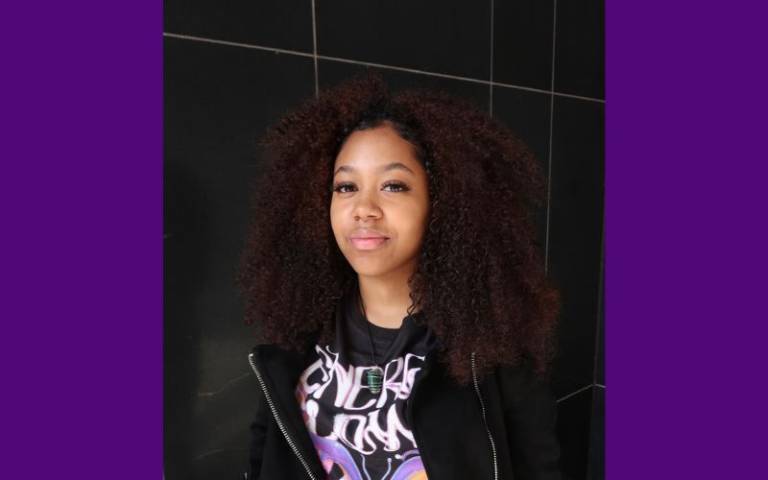Making research more inclusive through Citizen Science
24 October 2023
In Black History Month 2023, we speak to PROCOL UK Citizen Social Scientist Zarah Oke about how Citizen Science can make research more inclusive and what changes are still needed to make research and policy more representative.

Zarah Oke is a Citizen Social Scientist working with the IGP’s PROCOL UK team on ‘What is a Good Life In North Kensington’.
Please tell us about the Citizen Science work you do with the Institute for Global Prosperity. How do you think it helps to make research more inclusive?
I have been working with the Citizen Science team at the Institute for Global Prosperity researching the Young Adult’s ability to plan for a future in the midst of the regeneration project taking place where I live. The Citizen Science project has allowed me to be part of the research I feel is needed in my community. This form of research allowed the people of my area to be involved not only in the gaining of the research but in the decision making process that occurs on behalf of the research. This helps to make research more inclusive because when research on a community is carried out by people from the community, the lived experiences of those people are taken into account. The research is more inclusive and transparent in it’s intension and research process. The decisions then made based of this type of research includes the community also. Citizen Science also helps to make carrying out research more inclusive to people who may not perceive themselves as researchers. Research can often be thought to be the work of those with specific qualifications or titles and Citizen Science changes this assumption.
Could you give us an example of a positive change that you’ve seen in your community as a result of Citizen Science?
The Citizen Science program ran in my community from July until September. During this time I, and a range of other diverse people from the community learned about how to carry out Citizen Science research. We then decided our own topics based on the question ‘What is a Good Life in North Kensington’ to carry out research on. The process of gathering our research allowed many of us to engage with our community in a new way. We interacted with the people from our community gaining new insight about an area we had lived in our whole lives. We found a new appreciation for many things within our communities and it made us more passionate about the possible outcomes of our research. At the end of the project we put on an event to share the findings of our research, and important and key people in the areas we had researched were able to come and listen to what we had found and our suggestions on change or improvement. This was a huge positive change compared to what we were used to as we were able to keep these key people accountable for the role they had played or can play in our research. As we have only just finished I would say the positive change is a work in progress, however each of us have already been opened up to more opportunities in order to make sure our research can create a long lasting impact in our community.
What further change would you like to see in terms of representation in research and policy?
I would like to see more diverse and representative teams of people in research and policy. Decision making teams tend to not look like or have the same lived experience to the people they are researching and making decisions to impact. These teams are trusted to represent the people and communities they are affecting. It is important that those people understand the varying lived experiences of a community because they impact these communities. When research is done by people that do not represent the community or group they are researching, the policies created as a result can be biased and less inclusive. The policies can favour groups, areas, institutions and people not representative of those researched therefore negatively impacting them in the long run. Not only are our communities in London diverse in race but they are diverse in age, profession, and nationality and therefore research and policy should reflect this.
Why do you think it’s important for universities, and the UK more widely, to engage with Black History Month?
Black History Month highlights the impact of how people of African and Carribbean backgrounds have contributed and been an integral part of history and continue to be. The month is an opportunity for universities and the UK more widely to share, celebrate and understand this impact. While I do feel the achievements of people from African and Carribbean backgrounds should be highlighted all year round, the month pushes institutions like universities to make up for the lack of representation that may be in their curriculum and teaching.
Do you have any recommendations for books, social media accounts or anything else that people could engage with to better educate themselves?
I feel that Black history is very accessible online and through books. I feel Black History Month can sometimes highlight the late ‘history’ a little too much, stories we have heard and celebrated over and over every year. I would recommend for people to engage and better educate themselves on the current and recent history being created by people of African and Carribbean backgrounds. Past achievements and contributions to history are just as important as the current ones.
 Close
Close

